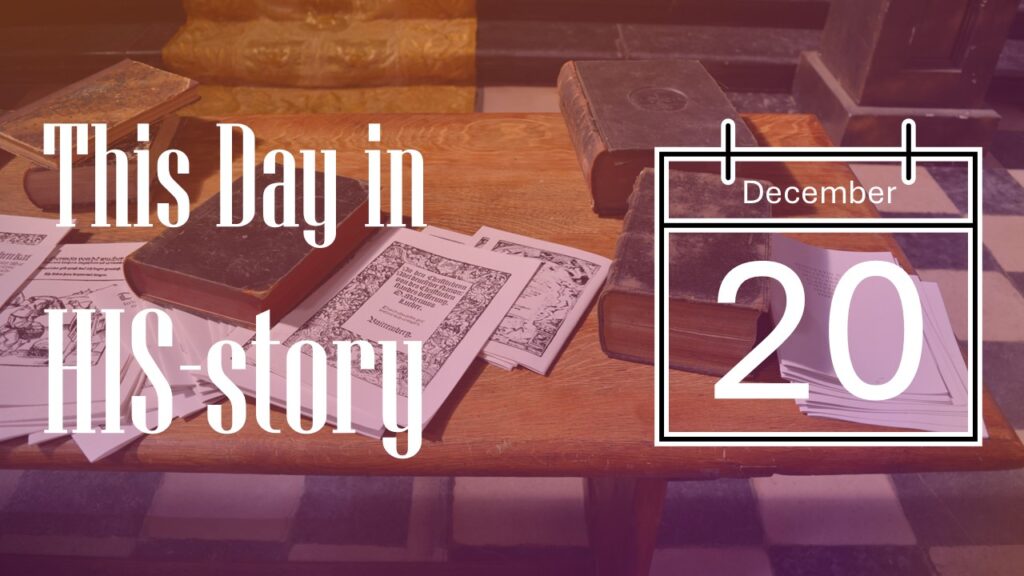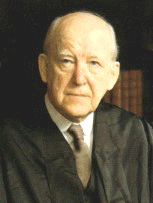
1846
HT: Christian History Institute
ONE DAY AROUND 1890, the inmates of a workhouse in Wakefield, England, crowded to windows in anticipation. Their bishop was coming to speak to them! Like people who line a street to view a parade, they were excited. They expected at the very least a magnificent coach with a team of horses and liveried footmen. Imagine their disappointment when all they saw was an old gentleman who drove up alone in a pony cart. Tender-hearted Bishop William Walsham How had avoided a magnificent display, thinking it would rub the noses of the poor in their poverty.
Born in 1823, How did well in school and attended Oxford. Having set his sights on Christian ministry, he was ordained a deacon in the Church of England on this day 20 December, 1846. Wherever he was assigned, he made deep friendships and won love and respect. In addition to performing his pastoral work, he wrote books and hymns.

Early in his career admirers recognized his spiritual depth and his practical ability as an administrator. Men such as Lord Shaftesbury offered him opportunities to become a bishop. How turned down all such offers until 1879 when he accepted an appeal to become suffragan (assistant) bishop in poverty-stricken East London.
That was work How could throw himself into heart and soul. He actively encouraged East London rectors and priests who labored despite understaffing and the formidable opposition of forces of sin. Not only did he visit them regularly, he set up a fund to enable the diocese to employ additional church workers. With his wife Frances, he gathered the team regularly at his home for fellowship and refreshments.
The spiritual and physical condition of East London improved under his zealous oversight and benefited from the simultaneous work of organizations such as the Salvation Army. His love for common people won him the title “Poor Man’s Bishop.” He knew how to couch his teaching in terms his audience could understand. This was true also in his dealings with youngsters, and he earned a second nickname—“The Children’s Bishop” because of his ease with them. (He told with delight of one little girl who examined him intently for a few minutes before remarking to her mother with disgust, “Why, he’s just a man!”)
Eventually a new bishop came to oversee the diocese and brought new expectations. Unable to carry on work in the manner he found most effective, How accepted an offer to become Bishop of Wakefield in 1888.
He served there to the end of his life, nine years later. During a violent coal strike, he endeavored unsuccessfully to bring reconciliation between mine-owners and miners.
Among his hymns were “For All the Saints,” “The Word of God Incarnate,” and “We Give Thee but Thine Own.”
We give thee but thine own, whate’er the gift may be;
all that we have is thine alone, a trust, O Lord, from thee.
1899
Cardiff is a seaport and the capital of Wales–a city graced with many historic buildings and overlooked by a castle on a hill. A town of fewer than 2,000 people in 1801, its population multiplied into the hundreds of thousands in the 19th century. Martyn Lloyd-Jones contributed to that population boom when he was born in Cardiff on this day, December 20, 1899.

Martyn’s childhood had at least one highlight: In January, 1910, his home caught on fire while he and his brothers were sleeping. All of them could easily have lost their lives. The family did lose almost everything they owned and their shaky finances never recovered. As a result, Martyn set out with real determination to succeed.
He entered a London medical school, completing all his exams at such a young age that he had to wait for his degree until his age caught up with his education. He became the chief clinical assistant of a leading physician, Sir Thomas Horder. Horder described Martyn as “the most acute thinker that I ever knew.” Martyn faced the prospect of a brilliant and financially rewarding career. But something happened to change that.
Martyn had joined a Calvinist Methodist church when he was fifteen-years-old. Around 1924, he began to seriously consider his spiritual condition. “For many years I thought I was a Christian when in fact I was not. It was only later that I came to see that I had never been a Christian and became one.” Reading the Bible for himself and pondering its meaning, he eventually realized that “What I needed was preaching that would convict me of sin and … bring me to repentance and tell me something about regeneration. But I never heard that. The preaching we had was always based on the assumption that we were all Christians…”
Martyn asked Christ to become master of his life. As soon as he had made that decision, he was overwhelmed with a longing to return to Wales to share his new-found faith with the folks back home.
He took a small church in Aberavon, Wales. Local doctors snubbed him, thinking he was going to poach on their patients. But Martyn wanted instead to win souls. He preached clear, analytical messages. Working men and women came to know Christ. Notorious alcoholics converted to Christ. Other churches invited him to speak.
A few years after Martyn came to Aberavon, a local doctor asked for help with a difficult medical case. Martyn diagnosed the problem at once and proved completely right. After that, demands for his medical assistance increased to the point that they almost threatened his pastoral work.
His name became increasingly well-known. G. Campbell Morgan, another pastor with a powerful ministry, invited him to come to Westminster Chapel. Martyn accepted the Westminster invitation in 1938. Publication of his powerful sermons made him internationally famous. He died in 1981.
